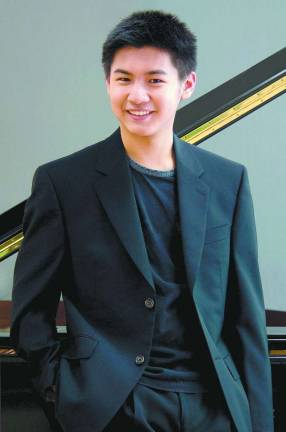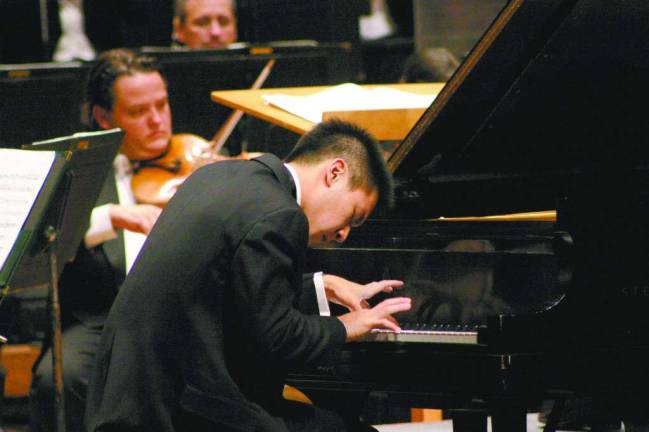Meet Conrad Tao


A young musician to remember
Conrad Tao is a pianist and composer, 18 years old. His bio tells us that he is "Chinese-American." It also tells us he was born in Illinois, and I can tell you that he seems as American as apple pie. But we live in an age of relentless hyphenation.
He played a program at Le Poisson Rouge, the Greenwich Village nightclub. Classical music wants nothing more than to be cool, and its attempts to be cool are awkward. Yet Le Poisson Rouge provides a nice venue, clattering plates and all. Furthermore, Tao's program was broadcast over Sirius radio.
The young man gave us the contents of his new CD, Voyages. The program, like the CD, began with a piece by Meredith Monk, not to be confused with Thelonious Monk. This was "Railroad (Travel Song)," pleasantly driving. Even among the clattering plates, Tao made it semi-hypnotic. He has a finely tuned internal motor.
Next, he played a group of preludes by Rachmaninoff. I got the feeling that the piano was a poor one. Tao's sound was dry, and colors were too few. Some lines that ought to be singing did not sing.
But Tao's musicianship was clear. You could quarrel with him, interpretively. I happen to like the G-major prelude relatively straight, whereas Tao was quite liberal with tempo. Nevertheless, he was musical. The C-minor prelude, he ended with glorious thunder. And the B-flat prelude was bold and hammering.
Tao has an interesting technique. It appears to be homemade, rather than textbook. The pianist looks tight, hindered. To use a baseball term, it looks like he "jams himself." But he can play anything, with no hindrance at all.
The highlight of the program was his own work, vestiges. (As I've written many times, lowercase letters are de rigueur in today's music.) There are four movements in this work. The first is Impressionistic, Debussyan. The second is a perpetual-motion exercise, reminding me of a Prokofiev toccata. The next called to mind Mompou-perhaps one of his Impresiones íntimas. The final one is Reichian, minimalistic, in the beginning. Then it becomes rhapsodic, Impressionistically rhapsodic, in the mold of L'Isle joyeuse (Debussy).
I have done the lazy thing of comparing new music to preceding music. But Tao's pieces are not imitative, they are his own, and they are beautiful and intelligent. I would be pleased to see them on any other pianist's program. They are more than one pianist's private scribbles.
At this point, Tao sat down with a man from Sirius radio for an interview. He, Tao, used such phrases as "socio-cultural narratives." I didn't understand him. But I did understand his playing of Ravel's Gaspard de la nuit, one of the hardest pieces, technically, in all the repertoire: He played it easily and convincingly.
He ended the evening with another of his own pieces, iridescence, for piano and iPad. It is sweet and pretty. The pianist taps a bit on the wood of the piano. It was maybe a little too psychedelic for me, but the piece is far from stupid.
This month, from the 11th through the 13th, Tao will host his own festival in Brooklyn, the Unplay Festival. About Chopin, Schumann famously said, "Hats off, gentlemen, a genius." I don't know whether Tao is a genius. It depends on our standards for that category. But I know that he is extraordinary, and that our hats should be off.